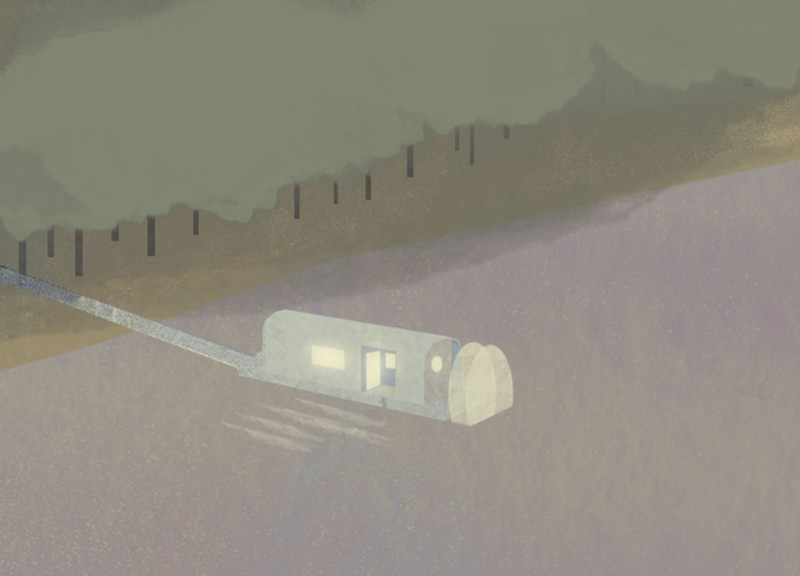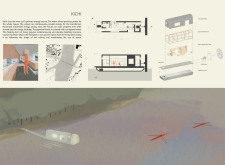5 key facts about this project
Kichi is an innovative residential design located by a river that plays a crucial role in its energy strategy. The overall concept centers around sustainability and adaptability, allowing the building to effectively interact with its natural surroundings. With a floating structure, Kichi meets the practical needs of modern living while harmonizing with the landscape.
Energy Strategy
At the heart of Kichi's design is a water wheel that utilizes the river's flow to produce power for the entire house. The water wheel ensures a steady energy supply and feeds into a transformer, contributing to the building's self-sufficiency. With the addition of Powerwall technology, the energy savings are maximized, allowing the home to remain functional even during long periods without external power.
Material Use
The building's framework is constructed using plywood, which is covered with corrugated sheet. This material choice emphasizes durability while following a philosophy of resource efficiency. The lightweight materials reduce environmental impact and enhance the project’s overall sustainability.
Spatial Efficiency
Kichi features custom-built furniture designed specifically for the living space, promoting an efficient use of area while enhancing everyday functionality. The design respects the geometric constraints of the ceiling, resulting in a thoughtfully arranged layout that encourages comfort and usability. This careful consideration of space allows for a welcoming environment without clutter.
The rhythmic motion of the water wheel against the backdrop of the flowing river enhances the connection between the structure and its surroundings. It provides an engaging focal point, highlighting the relationship between architecture and nature in daily life.



















































